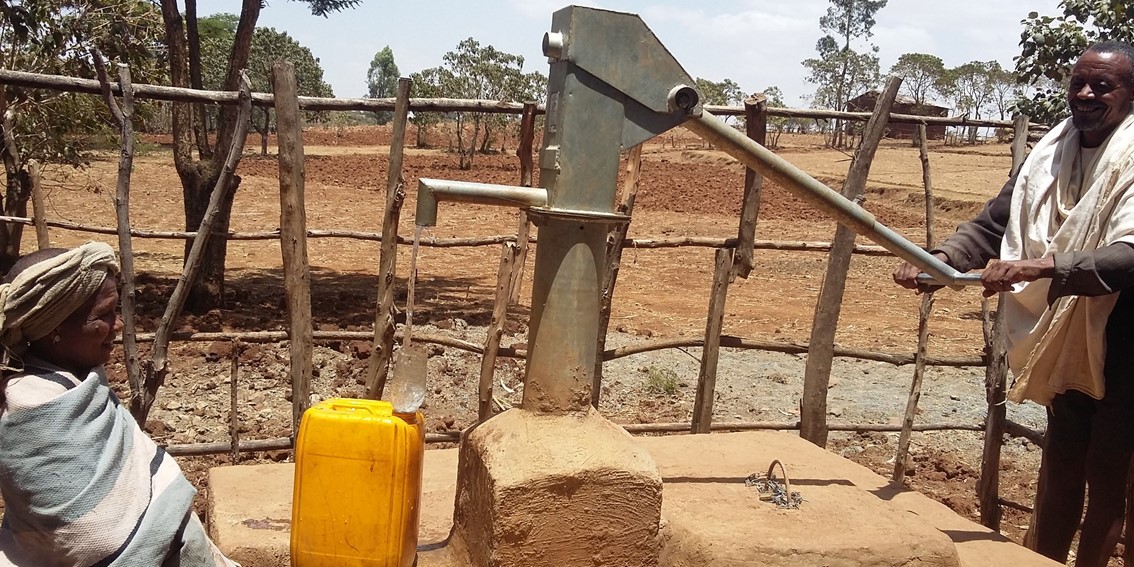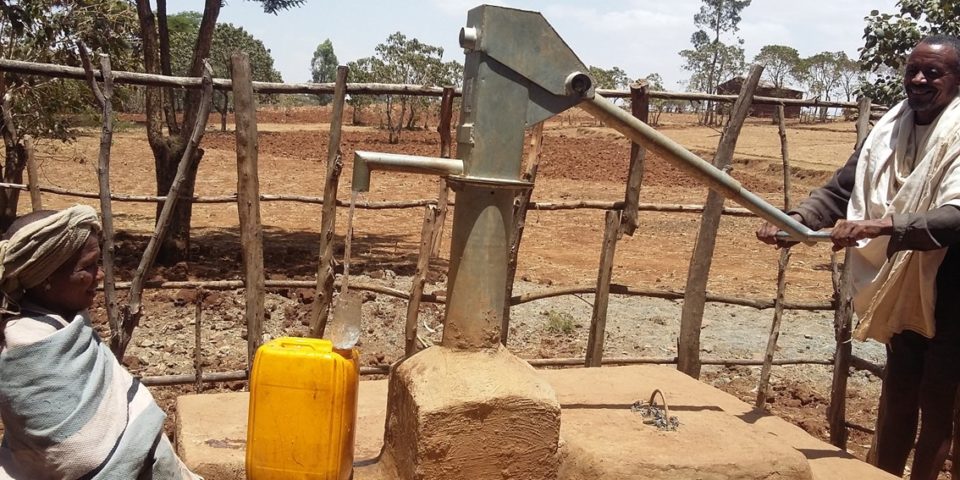
The Amhara Integrated Rural Water, Sanitation and Hygiene (AIRWASH) Project in Ethiopia works with both men and women to enhance women’s participation and to allow women to voice their needs in Water, Sanitation and Hygiene (WASH) related activities. Couples are trained together and make visits to other regions to share and learn from other people’s experiences, which they then draw on in order to build gender sensitivity into their own monthly community meetings. Changes have been observed in couples’ attitudes and behaviour. Not only are their actions more inclusive and sensitive to the differing needs of men and women, but the couples also act as promoters of good WASH practices. Very soon, their discussions transcend purely WASH-related issues and the participating couples start to address issues such as domestic violence. This gives us hope that the approach can encourage actors in society to promote greater gender equality. It also increases the sustainability of WASH services.
The approach used has been documented and presented at the Rural Water Supply Network (RWSN) forum 2016 in Abidjan, Côte d'Ivoire (article) , as well as in a RWSN webinar on "How to make WASH work for women" on 9 May 2017 (link). An illustrated publication gives insights.

